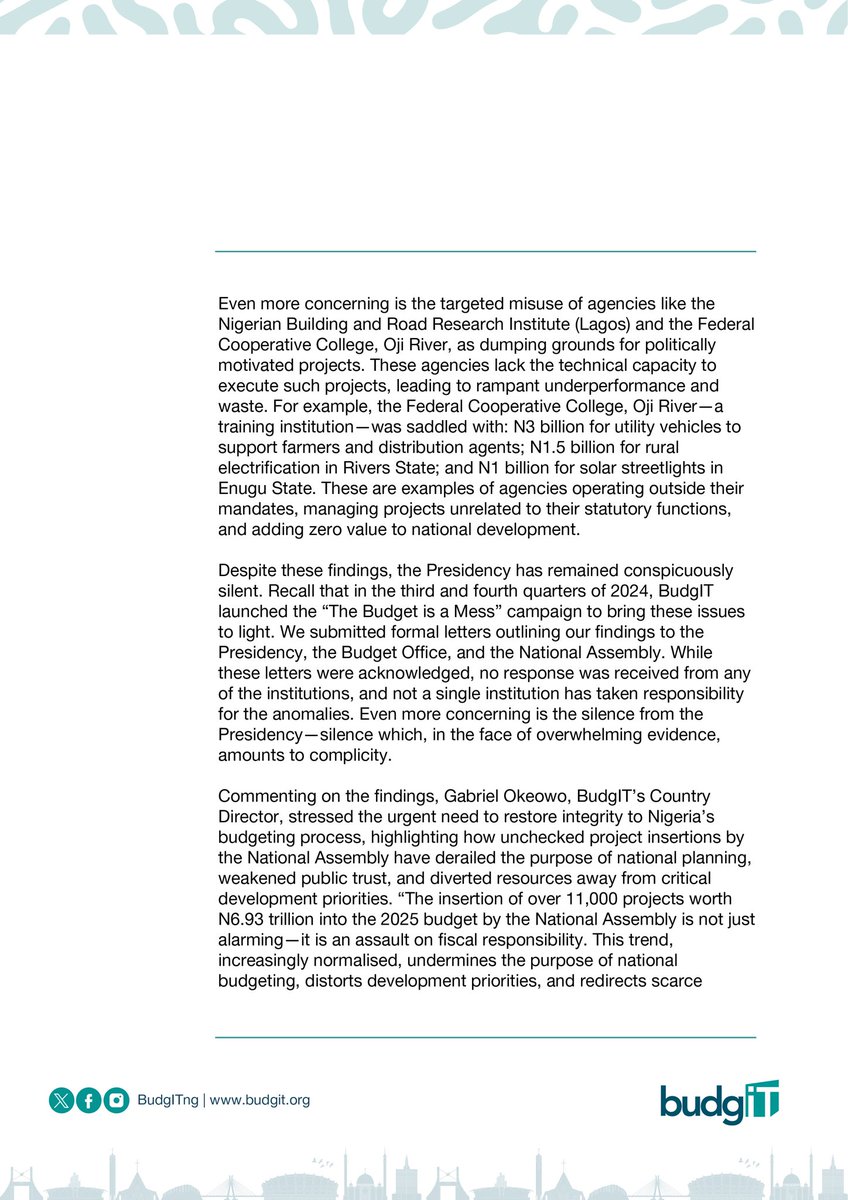THREAD
In the midst of the #COVID19 pandemic that has rattled most nations of the world, there is no better time to emphasize the need to prioritize and invest in healthcare infrastructure and improved healthcare service delivery across all levels of Government in Nigeria
In the midst of the #COVID19 pandemic that has rattled most nations of the world, there is no better time to emphasize the need to prioritize and invest in healthcare infrastructure and improved healthcare service delivery across all levels of Government in Nigeria

The government should not only be able to provide adequate health care infrastructure, its citizens should also be able to afford it, thus, there is a need to scale up investments in health infrastructure and health insurance reforms
#Fixhealthcare
#Fixhealthcare

Funds allocated to the health sector have been consistently poor, less than the African Union benchmark of 15% of total budget. The total allocation to the Health Sector has always been below 10% despite the steady rise in total budget from N4.4tn in 2015 to N10.33tn in 2020. 

In 2019, out of the 36 states, Kwara was the only state with a health sector allocation of 17% of total budget, above the 15% benchmark. 8 states including Katsina, Bauchi, Sokoto, Borno and Osun had above 10% while the others had below 10%. Disappointing!
#FixHealthcare
#FixHealthcare

Regionally, Nigeria had the lowest Health Expenditure per Capita in comparison with other African countries like Egypt, Angola, Morocco and South Africa according to data released by the World Bank in 2016.
#Fixhealthcare
#Fixhealthcare

Nigeria cannot afford to continue underfunding its tertiary health institutions and agencies like the @NCDCgov, otherwise we would always have ill-equipped and grossly inadequate facilities for health issues and emergencies like #COVID19.
#Fixhealthcare
#Fixhealthcare

The priorities must now include increasing investments and funding to tertiary health institutions and primary healthcare centers, ensuring basic health insurance for all Nigerians, and investing in hygienic environments.
#Fixhealthcare
#Fixhealthcare
• • •
Missing some Tweet in this thread? You can try to
force a refresh























